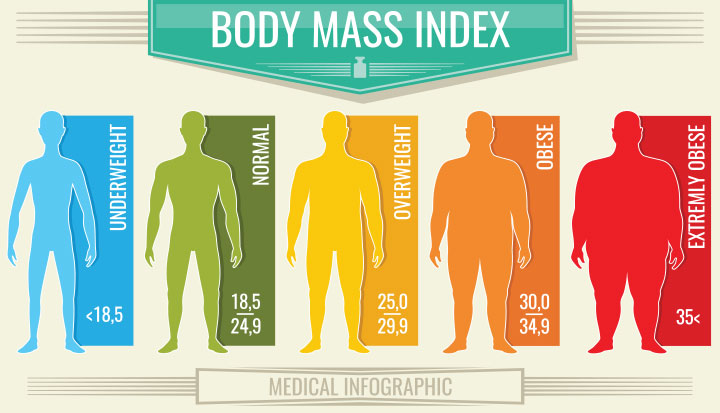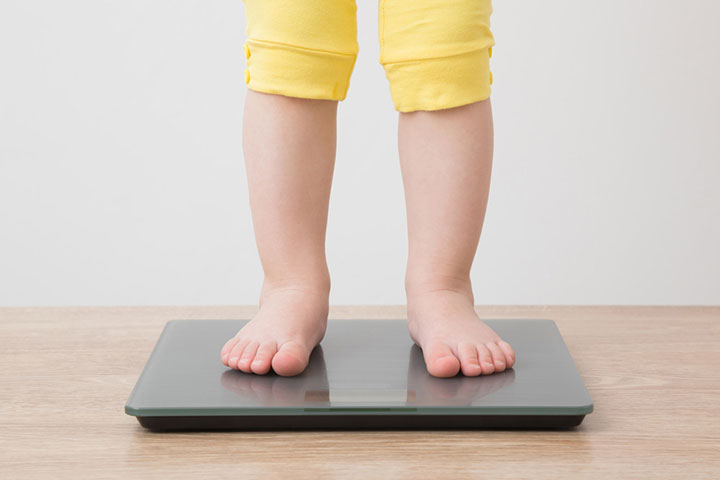
Image: Shutterstock
When it comes to kids, body mass index (BMI) can be a sensitive subject for parents. On the one hand, you want your child to maintain a healthy weight, but on the other hand, you don’t want them to become too obsessed with their body image. So is it the only parameter to judge whether your child is healthy or not? Should you limit your little one from having any food item based on height, weight, and age? You’ll get all the answers here.
Here in this article, we’ll discuss the credibility of BMI when addressing a child’s health, and whether to give it much importance or not. Let’s find out.
What Is BMI And How Does It Help In Determining The Overall Health Of A Person?
Body Mass Index (BMI) is a measure of body fat based on height and weight that applies to both adult men and women. It can be used as an indicator of overall health, as it indicates the amount of body fat a person has relative to their height.
BMI is calculated by dividing your weight in kilograms by your height in meters squared (kg/m2). A healthy BMI range falls between 18.5-24.9, but different countries may have slightly different ranges depending on their population’s average BMI levels.
Having a healthy BMI is important because being overweight or obese increases the risk for several serious health conditions such as heart disease, stroke, type 2 diabetes, and certain types of cancer which are all associated with higher mortality rates than those who maintain normal weights throughout their lifetime (2). For this reason, measuring one’s own Body Mass Index can help determine if they are at risk for these diseases or not so one could take action accordingly before any damage occurs.
Body Mass Index plays an essential role in determining the overall health status of individuals due to its ability to assess whether someone’s weight puts them at greater risk for developing chronic illnesses later down the line. Furthermore, knowing one’s own personal BMI value allows people to make better-informed decisions about dieting habits that will benefit them long-term while still maintaining good physical shape and mental well-being simultaneously.
Should You Blindly Trust The BMI To Check The Overall Health Of Your Kids?
BMI is a useful tool to measure the amount of body fat in adults, but it may not be an accurate way to determine whether someone is having a healthy lifestyle. BMI is limited to a few physical factors such as age, weight, and height which are not enough to judge whether a person has a good mental state, muscle build, or a healthy diet.
A more comprehensive approach should be taken when assessing the health of children rather than relying solely on their BMI measurements. Factors such as diet quality, eating habits, and physical activity should all be considered together with weight when determining if a child’s lifestyle is healthy or unhealthy. Parents should also ensure that their kids get regular check-ups from healthcare professionals who can assess their overall well-being beyond just measuring weight alone.
While Body Mass Index can provide some insight into adult weight status it may not accurately reflect the true picture of a child’s well-being due to its limitations in considering other factors like age and physical activity level amongst others. Therefore parents need to look at multiple indicators when evaluating whether their kids have adopted healthy lifestyles instead of relying only on one metric like BMI alone
Should You Care For Your Kid’s BMI?
To be honest, the answer is yes, but in moderation.
First of all, monitoring your child’s BMI is important because obesity in children has been linked to serious health consequences later in life such as diabetes and heart disease. That said, there are non-invasive ways that parents can help keep their children at a healthy weight without making them feel like they have an unhealthy relationship with food or exercise. For instance, encouraging physical activity throughout childhood can help prevent excessive weight gain while also teaching kids how fun exercise can be. Additionally, having regular conversations about nutrition and setting up balanced meal plans together will ensure that everyone stays happy and healthy over time without any added stress or pressure from tracking numbers too closely.
BMI can be helpful in providing general information about your child’s body fat status but it should not be relied upon solely when judging their overall well-being. Hopefully, you’ve got all your questions answered here. But do let us know in the comment section b how’d you like to measure your child’s overall health. Happy parenting!
Sources
- Body Mass Index, NCBI
- Healthy lifestyle and life expectancy free of cancer, cardiovascular disease, and type 2 diabetes: a prospective cohort study, NCBI
- BMI Tools, NHLBI
- Obesity in Pediatric Patients, NCBI















